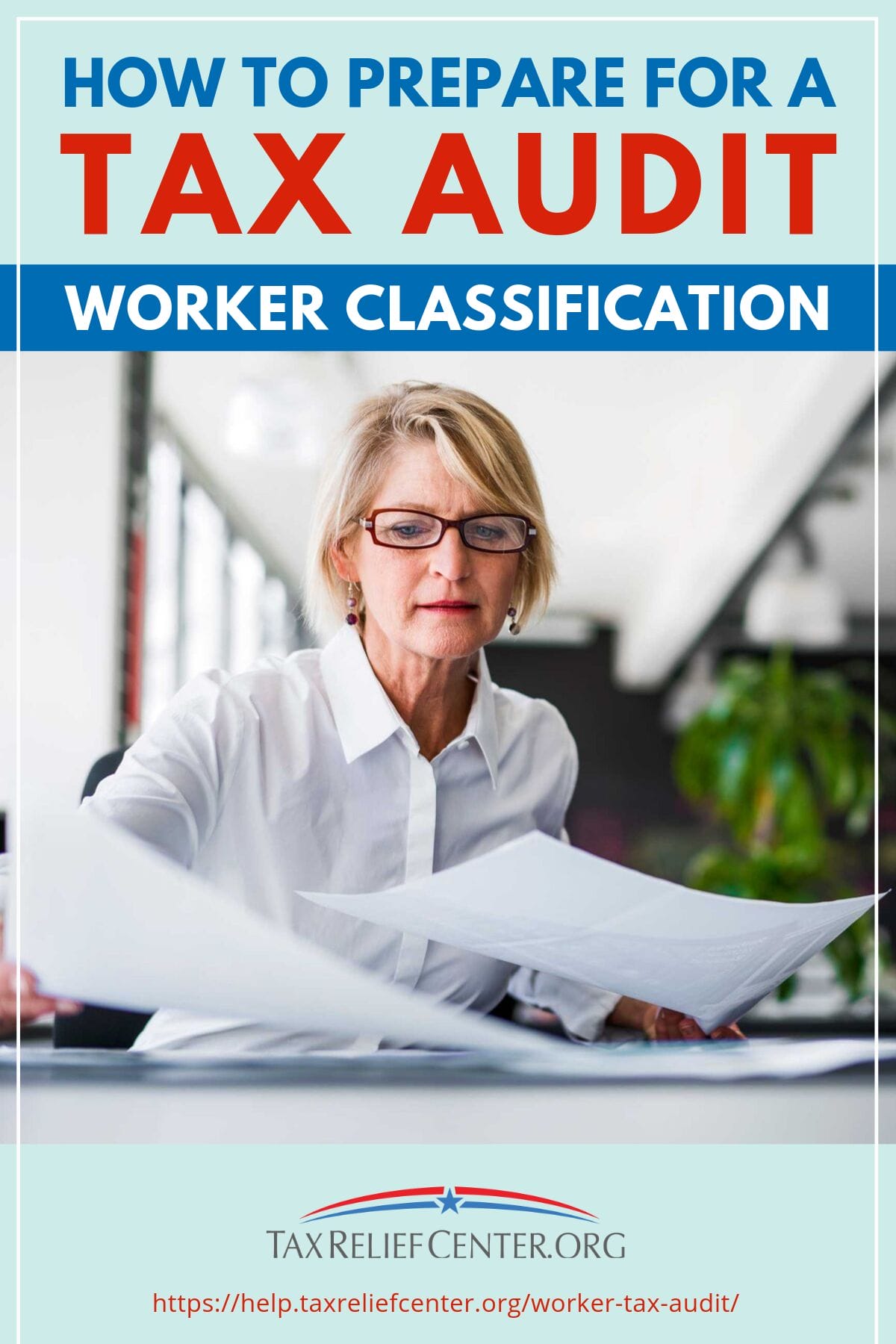It’s integral to learn how to prepare for a tax audit in the event the IRS wants to make sure you aren’t guilty of any employee misclassification.
RELATED: Can You Go To Prison For Not Paying Taxes?
How To Prepare For A Worker Classification Tax Audit
Step 1: Understand How to Properly Classify Workers
An IRS audit due to employee misclassification is a long process. Knowing the cause can make the complex audit process considerably easier, and may even help complete the audit faster than expected.
The “gig” economy, wherein businesses tap freelancers rather than hire full-time employees, has made employee classification much more complex than before. Some employers take advantage of the blurred lines between workers and independent contractors, as non-employees do not cost as much, as far as taxes or FICA (social security and Medicare) expenses to the company is concerned.
Around 10% to 20% of all employers mislabel workers as independent contractors rather than employees, either through bad faith or ignorance. The IRS takes an interest in employee misclassification due to lower tax revenues and possible worker abuse, so the first step in how to prepare for a tax audit due to possible misclassification is to make sure you can properly differentiate your regular employees from your freelancers.
Why does the IRS have such a big interest in employee misclassification?
Here are a few main technical differences in how the IRS treats employees and independent contractors.
- Employers send to the IRS either a W-2 for employees or a 1099 form for independent contractors, and any mismatch or change can result in a red flag.
- Employers withhold taxes for employees as well as contribute to FICA (social security and Medicare) which makes tax collection easier and the tax filing process faster as the IRS just collects money from one entity. On the other hand, freelancers take care of their own tax filing and payment, which means more work for the IRS as well as a higher risk of non-payment of taxes.
- Self-employed people and businesses typically pay more taxes than employees, and independent contractors have higher tax contributions and income, as well as the possible home office and a car for business transportation deduction that can lead to possible misrepresentation of deductibles.
Any discrepancy can lead to wasted resources for the IRS, as well as lost taxes.
How does the IRS decide whether or not a worker is an employee or an independent contractor? For a worker to be considered as an employee, the IRS looks at the relationship as well as the level of control regarding the actions of the worker.
Step 2: Review How the Employer or Business Owner Handles Their Workers
Since the IRS looks at how the employer works with the worker, taxpayers learning how to prepare for a tax audit for worker classification should familiarize themselves with the three control tests used by the IRS. These three are:
- Behavioral test, where the IRS looks at how the employer directs the worker’s operation during business hours. The higher the control over the specific task, as well as work hours and workload, the higher the chance that the IRS will consider the worker as an employee.
- Financial control, where the IRS will take a look at how crucial the employer is to the worker regarding income source. For example, if the worker works just for the employer, the IRS tends to decide that the worker is an employee, whereas a worker who works with other competitors usually are classified as independent contractors by the IRS.
- Worker relationship to the business, wherein the IRS takes a look at how crucial the worker or the role is to the daily operations of the business. For example, the IRS will decide that a worker is an employee if the business cannot exist without the role, or if the work hours of the employee matches the business work hours.
Of course, these three tests do not paint the whole employment picture, and most of the time the IRS favors deciding workers are employees in the name of social justice.
Important Information to Know When Learning How to Prepare for a Tax Audit
Also, the employment audit by the local Department of Labor may influence the IRS audit as well, so any worker with a favorable decision by the court can ask the IRS for their lost benefits from the employer.
Workers may file Form SS-8 to the IRS if they want to have their tax status changed, as well as obtain other benefits. Of course, the IRS will reach out to the employer, so Form SS-8 may work best if the worker is prepared.
Lastly, the local government may also declare some contractors as statutory employees, whether or not they work as contractors for employers. For these workers, the employer may need to withhold social security and Medicare contributions but may not necessarily be responsible for their income taxes.
These workers include salespersons, full-time insurance sales agents, as well as drivers for delivery. Employer taxpayers may want to talk to a tax specialist or advocate service provider for a more in-depth discussion about these special workers.
RELATED: 9 IRS Penalties You Could Be Facing After An Audit
Step 3: Read and Prepare the Contracts and Documents

Since the IRS will notify taxpayers about the worker IRS audit, taxpayers have at least a month to prepare. Just because there is an employment contract does not necessarily mean that the worker is an employee.
Documents that the IRS will look for include:
- Payslips and pay stubs,
- Copies of checks,
- Bank statements proving payment,
- Any document proving benefits like a vacation leave or sick pay,
- Communication logs,
- Income tax returns from both the employer and worker,
- Financial statements, and
- Any other written document showing how the worker relates to the business.
This list is not exhaustive, but includes the usual paperwork that the IRS looks for.
The IRS auditor may also interview other workers and even clients of the employer. The employer should prepare the contact information of all parties involved.
Any taxpayer can prepare the W-2 or 1099 to prove their side. Of course, the existence of these forms does not necessarily mean that the taxpayer is correct, but it can prove the intent of the employer.
Step 4: Understand What Happens If the IRS Audits You
An IRS audit may lead to more than the change of a tax status: there are a lot of heavy penalties from an audit.
Any IRS audit can also start an investigation of any possible tax penalties. Remember, an audit may focus on just tax status, but an exhaustive investigation by the audit follows, which can lead to more cases.
This investigation can lead to late penalties since income taxes and taxes that the employer needed to withhold were not processed. Most of the time, the IRS applies a failure to file penalty, but first-time offenders may ask for penalty abatement.
The IRS may also place a tax levy on assets, which can affect the employer or business operations.
During the audit, the officer can also request for more documents and receipts. If a taxpayer has some missing receipts, there are ways on how to handle lost tax receipts.
Step 5: Know How to Properly Talk to an IRS Auditor

When thinking of how to prepare for a tax audit, consider being:
- Calm, since it is easy to feel intimidated during the audit even if your hands are clean.
- Punctual, as the IRS officer has prepared for the audit, and the taxpayer should follow suit.
- Polite, as IRS auditors are people too and by showing respect, the audit process may proceed with the least resistance.
- Prepared by organizing all documents as well as possible contacts that the IRS will interview.
An IRS audit does not mean that a taxpayer is wrong; the audit happens to find out the truth. By following the above steps, a taxpayer can save time and resources in proving their side.
Have you had to learn how to prepare for a tax audit specifically for possible worker misclassification? How did the process go for you? Share your experience in the comments section below.
If you owe back taxes, visit taxreliefcenter.org for more information on tax relief options.
Up Next:
- Tax Penalty For Underpayment [2019 Edition] | Tax Relief Center
- What To Do If You’re Flagged For A Tax Audit
- Personal Income Tax | A Guide To Doing Your Taxes


